Textbooks, curriculum and the politics of education

The new school curriculum and textbooks have been grabbing headlines and sparking intense debate in the press and social media—and even prompting protests on the streets. All these have created a cacophony of noise, but have not shed enough light on the problem that could lead to a reasonable understanding of the issues and finding practical solutions.
Raging controversy and wide public interest about textbooks and the curriculum are understandable. Decisions and actions in these matters affect 40 million children, their parents and at least two million teachers and administrators involved in the nation's school system. The stakeholders add up to a large majority of the nation's population. Besides, these are matters of raising the next generation and building the future we envision for the nation.
Controversies about the contents of the curriculum and textbooks have arisen from time to time. For example, in 2013, media reported more than 200 errors—misinformation, wrong names of writers and grammatical mistakes in sentences—in the higher secondary economics textbook. In 2017, the National Curriculum and Textbook Board (NCTB) drew public flak by dropping contents from Bangla textbooks that were mostly written by non-Muslim writers. Textbook contents can change from time to time. But this time, the omission and commission allegedly happened in response to demands by Hefazat-e-Islam, a Qawmi madrasa-based group, and without following NCTB's own deliberative process. Incidentally, the omissions made in 2017 remain in the textbooks still in use.
The new round of curricular reform and textbook re-writing that began to be implemented in phases since 2022, has given rise to a spate of debate—sometimes acrimonious—pointing to different kinds of problems with the new initiative. In 2023, a demonstration called by the Khelafat Majlish in front of Baitul Mukarram National Mosque declared the new curriculum to be propagating Hindutva, undermining contribution of the Muslim rulers of Bengal, and insulting religious beliefs of Muslims by teaching Darwin's theory of evolution.
Parents and teachers' groups have expressed their concerns about the change in the pedagogy practices in the classroom and the assessment of students' performance required by the new curriculum. They have complained about what they saw as drastic changes for which the teachers and students were not prepared and which would not lead to better learning outcomes.
The education authorities have defended the changes as necessary to prepare the next generation for the changing times, weaning them away from memorising guidebooks and relying on private tutors.
A recent controversy arose when a university instructor, in a public event, ripped off pages from a Class 7 textbook about the experience of a "third gender" person. The incident received wide publicity on social media and in the press. Rights of individuals, respect for diversity, religious sensitivities about genders, teaching empathy for the marginalised, and age-appropriate learning content—all came to the fore because of this incident. Different protagonists became vocal with their own respective agenda. A reasoned consideration of the issue, if there was an issue, became the casualty.
Plagiarism, factual errors and inconsistencies, and spelling errors have been cited in the past about the textbooks. Nadim Mahmood, who is an instructor at the Department of Neuroscience, University of California at Irvine, and a writer about Bangladesh education, reviewed the science textbooks, the Bangla and English versions, for Class VII and Class IX-X. He has written a two-part analysis based on his review in Prothom Alo on January 29 and 30.
Mahmood concluded that sections of the books were copied in part or fully from different online blogs, the website of the Indian online instruction platform Byju's, and other sources. In preparing the English version, Google translator was extensively used. Mahmood found that relying on the Google translator did not often produce acceptable texts, and there were problems with the Bangla terminology of some scientific terms. He cited examples of mistakes in the narratives and factual errors. Some graphics did not have appropriate or complete legends.
I assume Mahmood, as a science instructor at a reputed university, knows what he is talking about. As he mentioned, there was a team of 11 writers who prepared the Bangla text. For the English version, six translators joined the original writers.
It appears that the writers' team did not do a professionally acceptable job, and the process of further scrutiny and approval of NCTB was not up to the mark. Internet sources, including blogs and websites, can be used as resources for preparing learning materials, but academic ethics require that such borrowing should be properly acknowledged. In a school textbook this may be done in the preface.
On the other hand, a writers' team for an NCTB textbook, while they would consult various sources, should be able to prepare texts with illustrations and narratives of their own that are particularly relevant and appropriate for students in Bangladesh. "Copy-paste" is certainly not acceptable for NCTB textbooks.
The authorities have tried to convey two messages: that much of the criticism of the curriculum and textbooks is motivated by political agenda rather than concern for children's education, and that the teething problems in the reform efforts are being addressed and would be mitigated in time. There is truth in these arguments, but not the whole truth.
I wrote earlier that at least three major problems intersect in this controversy: a) the handling of content regarding the matters of religious beliefs and views about history and culture while those of fundamentalist inclinations stoke the dispute; b) capacity of NCTB to avert deficiencies in factual errors, printing mistakes and inconsistencies in the content and quality of the textbooks; and c) the capability and preparation of teachers and the conditions in schools and classrooms that would allow implementing ambitious changes anticipated in pedagogy and student assessment (The Daily Star, February 12, 2023).
The newly appointed education minister has asserted that the goals and the broad pattern of curriculum reform remain valid, but its implementation including aspects of assessment and pedagogy may be modified and adjusted in the light of experience and expert advice. Given the high stakes and consequences of failure for children's education, it is now necessary to take urgent steps in this direction by matching schools' and teachers' capacity-building with curriculum, pedagogy and student assessment reform.
Schools, teachers, students and parents have to be prepared, be supportive and be ready to play their roles in implementing the anticipated transformative reform. Urgent steps to this end will include:
· A committee of experts and practitioners, including teachers and some who are not directly involved in the current initiative, should be appointed to assess objectively and rapidly the problems encountered in implementing the proposed pedagogy and assessment approaches.
· The committee should recommend necessary adjustments in pedagogy and student assessment, teacher and school support and supervision, articulation and continuity of curricular content among grades and parent involvement.
· The timetable for rollout should be adjusted taking 2024 as a period of learning and reflection.
Textbook content and quality are not the only obstacle to improving school education. The NCTB needs to be more serious about addressing the recurring problems in this respect. It needs political backing to achieve this goal.
Dr Manzoor Ahmed is professor emeritus at Brac University, chair of Bangladesh ECD Network (BEN), and adviser to Campaign for Popular Education (Campe). Views expressed in this article are the author's own.
Views expressed in this article are the author's own.
Follow The Daily Star Opinion on Facebook for the latest opinions, commentaries and analyses by experts and professionals. To contribute your article or letter to The Daily Star Opinion, see our guidelines for submission.

 For all latest news, follow The Daily Star's Google News channel.
For all latest news, follow The Daily Star's Google News channel. 
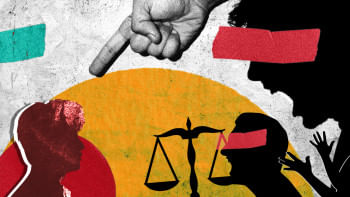
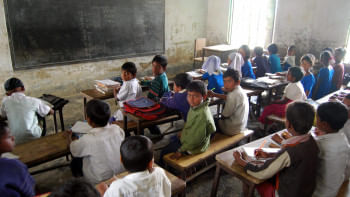
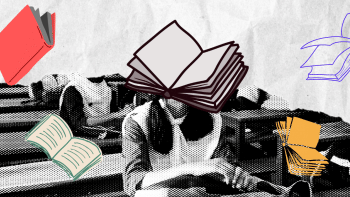


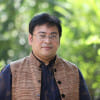
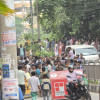


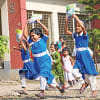


Comments